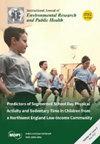Exploring Prehospital Data for Pandemic Preparedness: A Western Brazilian Amazon Case Study on COVID-19
3区 综合性期刊
Q1 Medicine
International Journal of Environmental Research and Public Health
Pub Date : 2024-09-18
DOI:10.3390/ijerph21091229
引用次数: 0
Abstract
Background: The timely management of rapidly evolving epidemiological scenarios caused by disease outbreaks is crucial to prevent devastating consequences. However, delayed laboratory diagnostics can hamper swift health policy and epidemic response, especially in remote regions such as the western Brazilian Amazon. The aim of the article is to analyze the impact of the COVID-19 pandemic on the volume and characteristics of emergency medical services (EMS) in Manaus, focusing on how the pandemic affected sensitive indicators such as response time and the use of advanced life support ambulances. Additionally, the study seeks to understand how changes in prehospital EMS patterns, triggered by the pandemic, could be utilized as health surveillance tools, enabling a more rapid response in epidemic scenarios. Methods: This retrospective, descriptive study included data from the SAMU (Serviço de Atendimento Móvel de Urgência) medical records between January and June 2020. Results: A total of 45,581 calls resulted in mobile units being dispatched during this period. These patients were predominantly male (28,227, 61.9%), with a median age of 47 years (IQR 30–67). The median response time significantly increased during the pandemic, reaching a median of 45.9 min (IQR 30.6–67.7) (p < 0.001). EMS calls were reduced for trauma patients and increased for other medical emergencies, especially respiratory conditions, concomitantly to an escalation in the number of deaths caused by SARS and COVID-19 (p < 0.001). The employment of advanced life support ambulances was higher during the pandemic phase (p = 0.0007). Conclusion: The COVID-19 pandemic resulted in a temporary disorder in the volume and reason for EMS calls in Manaus. Consequently, sensitive indicators like the response time and the employment of advanced life support ambulances were negatively affected. Sudden prehospital EMS pattern changes could play an important role in health surveillance systems, allowing for earlier establishment of countermeasures in epidemics. The impact of the COVID-19 pandemic on prehospital EMS and its role in health surveillance should be further explored.探索大流行病防备的院前数据:关于 COVID-19 的巴西亚马逊河西部案例研究
背景:及时处理疾病爆发导致的快速演变的流行病学情况对于防止破坏性后果至关重要。然而,实验室诊断的延误会妨碍迅速制定卫生政策和疫情应对措施,尤其是在巴西亚马逊西部等偏远地区。本文旨在分析 COVID-19 大流行对玛瑙斯紧急医疗服务(EMS)的数量和特点的影响,重点关注大流行如何影响响应时间和高级生命支持救护车的使用等敏感指标。此外,该研究还试图了解如何利用大流行病引发的院前急救模式变化作为健康监测工具,以便在流行病情况下做出更快速的反应。方法:这项回顾性、描述性研究包括 SAMU(Serviço de Atendimento Móvel de Urgência)在 2020 年 1 月至 6 月期间的医疗记录数据。研究结果在此期间,共有 45,581 次呼叫导致移动医疗单位出动。这些患者以男性为主(28227 人,61.9%),中位年龄为 47 岁(IQR 30-67)。在大流行期间,响应时间的中位数明显增加,达到 45.9 分钟(IQR 30.6-67.7)(p < 0.001)。在 SARS 和 COVID-19 导致死亡人数增加的同时,创伤病人的急救呼叫减少了,而其他医疗紧急情况(尤其是呼吸系统疾病)的呼叫增加了(p < 0.001)。在大流行阶段,高级生命支持救护车的使用率更高(p = 0.0007)。结论COVID-19 大流行导致马瑙斯紧急医疗服务呼叫的数量和原因出现暂时性混乱。因此,响应时间和高级生命支持救护车的使用等敏感指标受到了负面影响。院前急救模式的突然变化可在健康监测系统中发挥重要作用,以便在流行病发生时尽早制定应对措施。应进一步探讨 COVID-19 大流行对院前急救服务的影响及其在健康监测中的作用。
本文章由计算机程序翻译,如有差异,请以英文原文为准。
求助全文
约1分钟内获得全文
求助全文
来源期刊

International Journal of Environmental Research and Public Health
Medicine-Public Health, Environmental and Occupational Health
CiteScore
7.30
自引率
0.00%
发文量
14422
审稿时长
1 months
期刊介绍:
International Journal of Environmental Research and Public Health (IJERPH) (ISSN 1660-4601) is a peer-reviewed scientific journal that publishes original articles, critical reviews, research notes, and short communications in the interdisciplinary area of environmental health sciences and public health. It links several scientific disciplines including biology, biochemistry, biotechnology, cellular and molecular biology, chemistry, computer science, ecology, engineering, epidemiology, genetics, immunology, microbiology, oncology, pathology, pharmacology, and toxicology, in an integrated fashion, to address critical issues related to environmental quality and public health. Therefore, IJERPH focuses on the publication of scientific and technical information on the impacts of natural phenomena and anthropogenic factors on the quality of our environment, the interrelationships between environmental health and the quality of life, as well as the socio-cultural, political, economic, and legal considerations related to environmental stewardship and public health.
The 2018 IJERPH Outstanding Reviewer Award has been launched! This award acknowledge those who have generously dedicated their time to review manuscripts submitted to IJERPH. See full details at http://www.mdpi.com/journal/ijerph/awards.
 求助内容:
求助内容: 应助结果提醒方式:
应助结果提醒方式:


